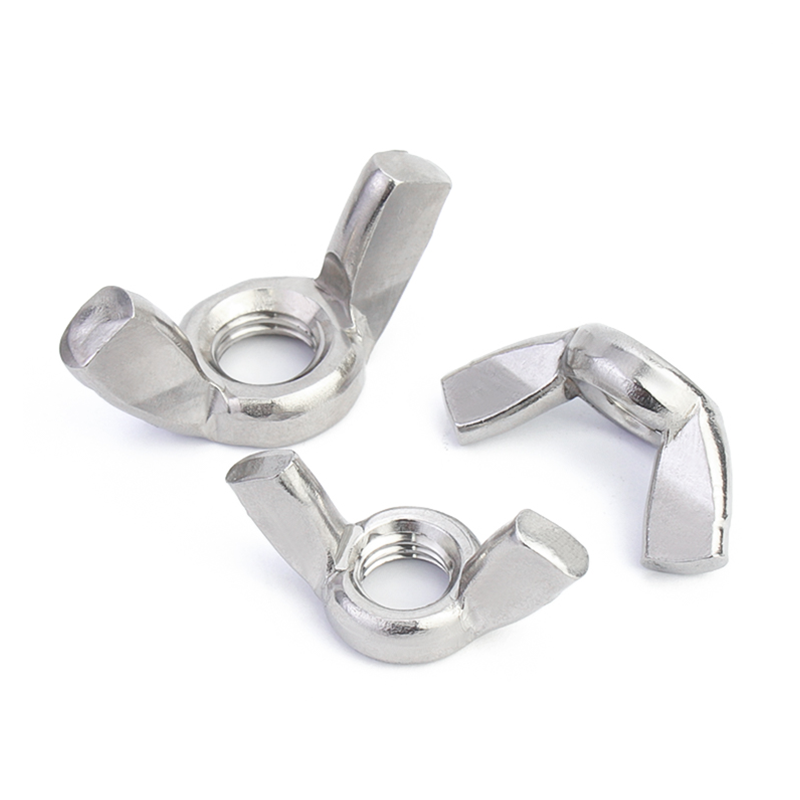

Flanged Lock Nut for Secure Fastening in Mechanical Applications
Août . 18, 2024 03:26 Back to list
Flanged Lock Nut for Secure Fastening in Mechanical Applications
Understanding Lock Nuts with Flange Features, Benefits, and Applications
Lock nuts with flange are specialized fasteners designed to prevent loosening under vibration and torque while offering added stability and support. These nuts combine a traditional locking mechanism with an integrated flange, making them an essential component in various mechanical and structural applications. Understanding their design, benefits, and practical use cases can help engineers and DIY enthusiasts alike make informed decisions in their projects.
Design and Features
Lock nuts with flange typically feature a built-in circular lip or flange at the base, which provides a larger surface area for distribution of load. This design minimizes the risk of deformation or damage to the material being fastened. The flange also serves to provide additional support, helping to maintain the alignment of components.
These nuts are usually manufactured from high-strength materials, such as stainless steel or carbon steel, which not only contributes to their durability but also enhances their resistance to corrosion. Available in various sizes and thread patterns, lock nuts with flange can cater to a wide range of applications, from construction and automotive to industrial machinery.
Benefits of Lock Nuts with Flange
One of the primary advantages of using lock nuts with flange is their ability to resist loosening. Traditional nuts can loosen over time due to vibration, thermal expansion, and other forces acting on a mechanical assembly. In contrast, the locking mechanism in these nuts—often either a serrated underside or a nylon insert—provides an additional grip on the bolt, ensuring a secure fit.
lock nut with flange

Moreover, the flange design helps to distribute the load more evenly across the surface area, which reduces the risk of damage to connected materials. This is particularly beneficial in high-stress applications, where uneven load distribution could compromise the integrity of the assembly.
Another significant benefit is ease of installation. The flange acts as a built-in washer, simplifying the fastening process and reducing the number of components required. This can save time and labor during assembly, making lock nuts with flange a cost-effective choice for many projects.
Applications
Lock nuts with flange are versatile and can be found in numerous applications across various industries. In the automotive sector, they are commonly used in engine assemblies, exhaust systems, and suspension systems, where vibrations are prevalent. Similarly, in the aerospace industry, these fasteners are critical for securing components that must withstand rigorous conditions.
In construction, the use of lock nuts with flange in structural connections enhances the safety and stability of buildings and infrastructure. They are also favored in manufacturing settings, where machinery and equipment often experience harsh working conditions that necessitate reliable fastening solutions.
Conclusion
In summary, lock nuts with flange are an essential component for ensuring secure and reliable fastening in various applications. Their unique design, which combines a locking mechanism with a supportive flange, offers superior resistance to loosening and damage, making them a go-to option for engineers and builders. Whether in automotive, aerospace, construction, or manufacturing, the benefits and versatility of lock nuts with flange help to create safer, more efficient, and durable products. As industries continue to evolve and demand higher standards, these fasteners will undoubtedly remain a vital part of mechanical assembly and design.
Latest news
-
Premium Fasteners Manufacturer | AI-Driven Solutions
NewsAug.01,2025
-
Hot Dip Galvanized Bolts - Hebei Longze | High Strength, Corrosion Resistance
NewsAug.01,2025
-
High-Strength Hot Dip Galvanized Bolts - LongZe | Corrosion Resistance, Custom Sizes
NewsAug.01,2025
-
Best Self Tapping Screws for Drywall - Fast & Secure Installation
NewsJul.31,2025
-
High-Strength Hot Dip Galvanized Bolts-Hebei Longze|Corrosion Resistance&Customization
NewsJul.31,2025
-
Hot Dip Galvanized Bolts-Hebei Longze Metal Products|Corrosion Resistance&High Strength
NewsJul.31,2025

